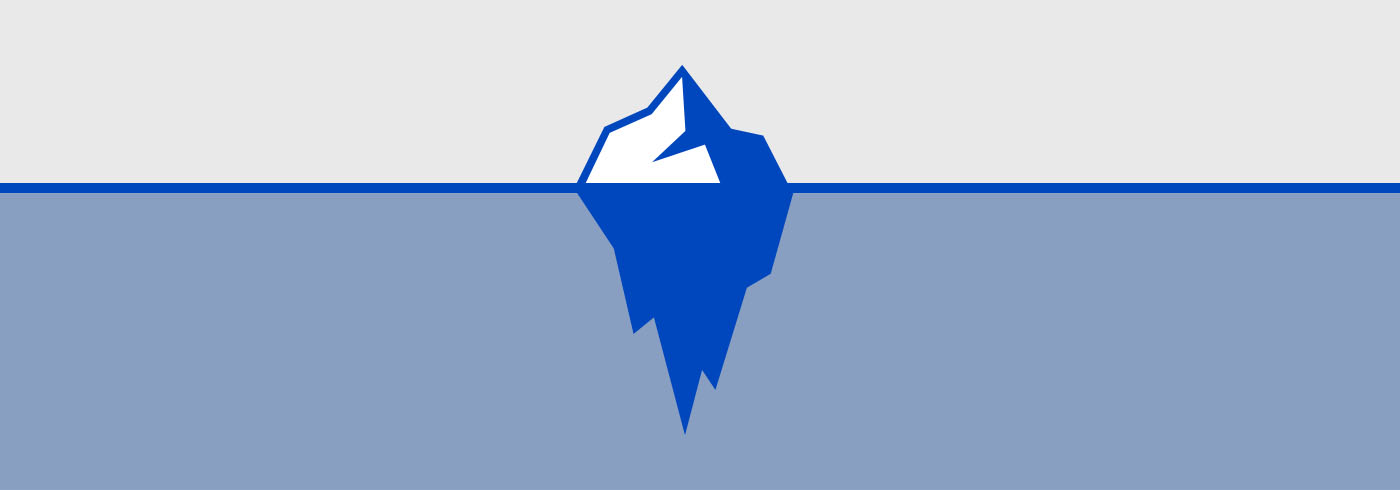


What is the Dark Web?
04/09/2017
If you read the news or indulge in the occasional cybercrime movie you will have no doubt heard the term the ‘dark web’ before. As this hidden world becomes increasingly accessible however, the impact of the dark web is likely to grow and it’s useful to be aware of what it is and why it exists.
The analogy of an iceberg has often been used to help illustrate the different aspects of the World Wide Web that we all know and use. Public websites such as BBC News are an example of what is sometimes called the ‘surface web’. This is largely unencrypted content, sitting in plain view and is available for anyone to access. When accessing these types of websites, certain information about your location and IP address can be captured and shared to relevant parties such as Google or your Internet Service Provider (ISP). Sitting just below the surface exists ‘the deep web’ – a term originally coined to simply describe the parts of the web that search engines can’t index because they’re hidden – e.g. your bank account information or a private magazine you subscribe to for example. The ‘dark web’ however, refers to the most hidden and inaccessible parts of the web that require specific configurations, software or authorisation to access. Dark web content cannot be indexed by search engines and users of the dark web enjoy a high level of anonymity thanks to complex encryptions that allow these networks to exist.
The largest private network within the dark web can be accessed through software called The Onion Router (TOR) browser, which was originally the result of a US Navy research project. In 2010, TOR proved fundamental to the Arab Spring by enabling activists to secretly mobilise. Shortly after, in 2013, Edward Snowden famously passed highly classified information to the media using TOR. Whilst there are some legitimate uses for the dark web, the anonymity afforded its users has inevitably led to the adoption of this technology by cyber criminals, facilitating some of the most abhorrent illegal activities including the sale of drugs, credit card information, weapons, illegal pornography and human trafficking. Terrorist organisations such as ISIS are also believed to use the dark web to share tactical plans and intelligence information.
As the world becomes increasingly digitised, it’s important to be aware of the ways in which technology is shaping our environment and both the opportunities and challenges it poses for the future. Currently, global efforts are being made to raise awareness and to educate web users about the dangers and pitfalls of sharing sensitive information online and these initiatives are an important part of the way we can navigate the waters safely in years to come. The topic of the dark web is a no doubt one that will re-surface in the news with increased frequency in the years to come and hopefully you’ll now be a bit better equipped to understand what it is and how it plays a role in our digital world.
If you’d like more information about how to protect yourself online, the Information Commissioner’s Office (ICO) has a wealth of advice on how to protect your personal data: https://ico.org.uk/for-the-public/
